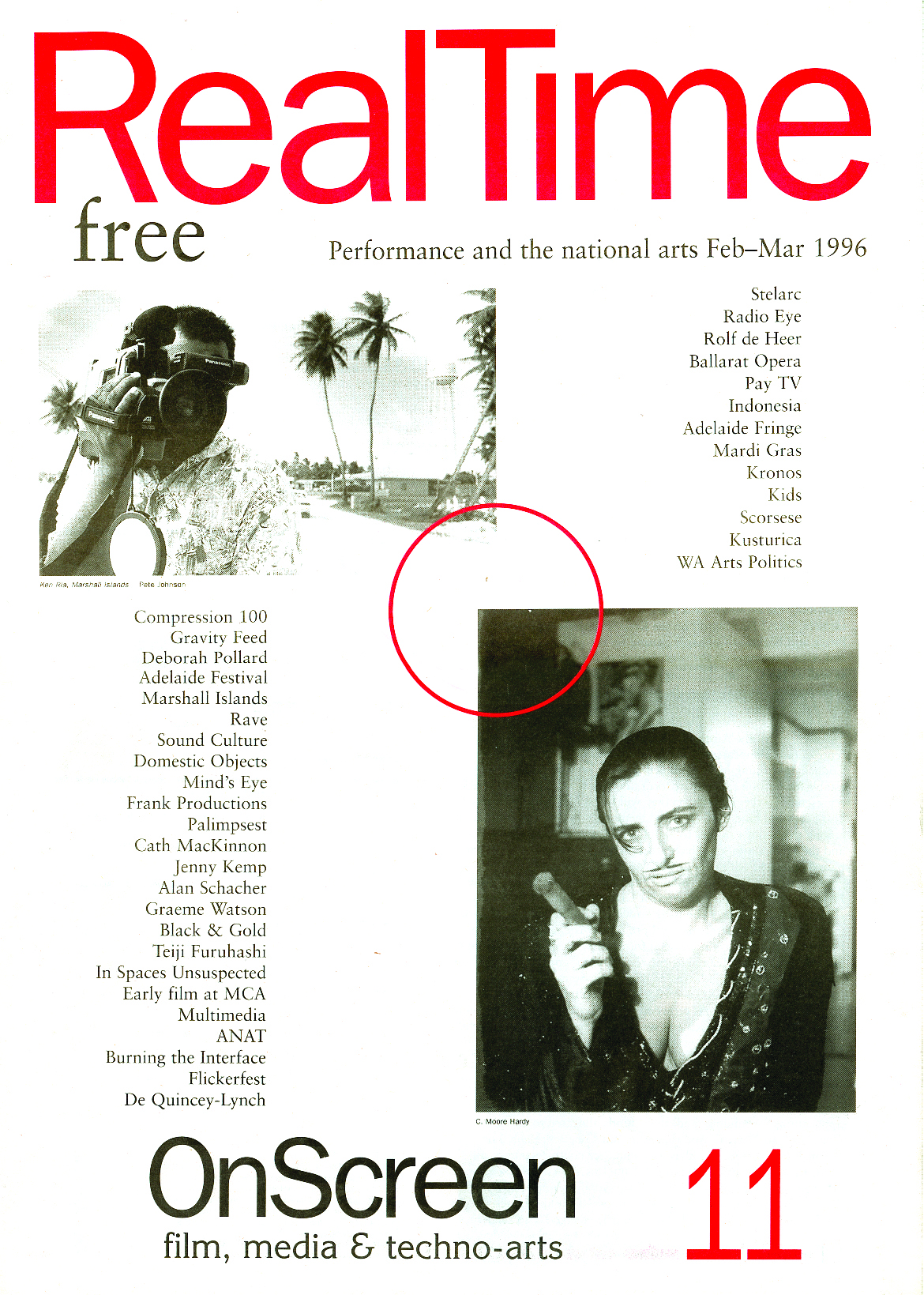
Interrogating diversity
RealTime Issue 11, February – March 1996
Richard Murphet meets visiting UK writer Deborah Levy.
Deborah Levy is a mongrel. “I was born in South Africa and we left the hideous apartheid regime when I was nine and I then grew up in England. My father’s Jewish, my mother’s Protestant. So there I am stranded between all those points with all of them trying to claim me as theirs.” Not that Levy claims this as an exotic or even unusual perspective from which to view the contemporary Western world. Far from it. “The idea that there is a pure culture in our contemporary world is totally untrue. Our society is impure—no wonder cultural identity is what everyone is talking about.”
It is of course a perspective with particular relevance to Australia and its increasingly complex cultural landscape. In that context, Levy’s visit to Melbourne, Sydney and Brisbane in late 1995 as part of the Playworks 10th Anniversary Festival, Playing with Time, was a welcome chance to encounter the writer and her work.
For what is fascinating about Levy’s recent theatrical work is not only that it celebrates cultural diversity on a social level but that it discovers that diversity within the individual herself. Any sense of gender essentiality or an individual authentic self are undermined during the fluid investigations of identity in The B File or in the careful and witty deconstruction of truth in relationships at the heart of An Amorous Discourse In The Suburbs Of Hell.
Theatre has long provided a stage for the interplay between truth and reality and Levy exploits this to its extreme. The B-File has a semblance of the form of personal confessional performances of recent years. But the kitsch costumes, the controvertible biographical facts of the five dramatis personae (all called Beatrice, although all supposedly of different cultural backgrounds) and the presence of an Interpreter as an unreliable bridge between us and them combine to make it clear we are witnessing not the tale(s) of a search for an authentic self but the careful construction of an image of inauthenticity in a world of difference. “A world without difference seems to me to be an appalling world.”
Levy’s fluid sense of identity has caused her, in her more recent theatre texts, to develop for each work a form that is an integral part of her “interrogation” of the themes that fascinate her. In other words, she has been forced to jettison both ‘narrative’ and ‘character’ as being too overdetermined for her shakily determined world. “I’m not in the least bit interested in narrative in the theatre (although interestingly she is becoming more so in her novels). I really don’t come to the theatre to be told stories that the playwright already knows.” This was not always the case. Her early work is structured along more recognisable dramatic lines. But Levy recounts with a mixture of joy and horror the experience of going to a performance of one of her plays—produced successfully by the Royal Shakespeare Company—and hating the result so much she realised she could never write like that again. In hindsight she realised how much the very form of the well-made play dictated the manner in which she could investigate her themes. “In my early days, when I called my texts ‘plays’, I was required to write scenes that I didn’t like and I had to write them in not because I wanted to but because the form of the play dictated it—and I used to dread it. And then I realised that if you wanted to zoom into someone’s head—their inner life—you could write that life and record it and present it as a part of the visual world of the text.”
In throwing off the cumbersome form of the dramatic play (a “dead and dying form that sits very uncomfortably with any kind of expression of the contemporary world”), Levy is able to concentrate on crafting distilled theatrical images that work simultaneously on several levels. The texts are closely choreographed visually in order to provide strict frameworks for her verbal language—a language both highly imaginative and filled with argot, advertising jargon and songs. This is the common language of the inter(mixed) nationalist. It is also a language of the eternal present and works with the eschewing of narrative and character to undermine the theatre’s obsession with cause and effect. “Naturalistic characters always come on the stage with too much baggage. They rarely allow the audience space to project onto. That’s why I prefer working with persona. It gives space for the audience to imaginatively construct and reconstruct what it is they are seeing. Theatre is obsessed with explaining every moment and its causation in a way that doesn’t interest me much.”
Levy, like her plays, is lively, inquisitive and, thankfully, full of humour. “My early plays were rather dour. I had this idea that humour was what you did in your life and in your art it shouldn’t be there. I find that absurd now. I think everything, even the saddest moments, should, perhaps in a dark way, be very funny.”
–






